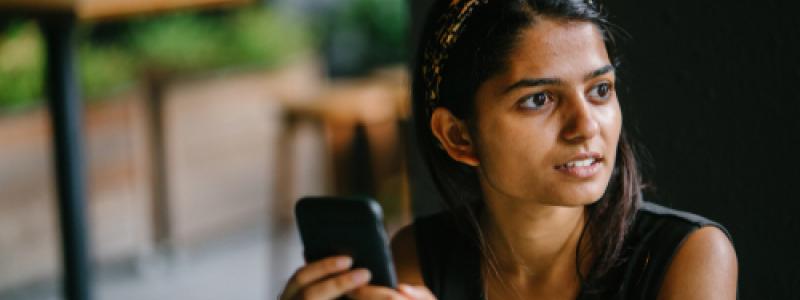WhatsApp combats fake news with a new forwarded label

In the digital information age, it makes sense to make a firm stand against fake news, especially now that the spread of inaccurate information can mean the difference between life or death for people or certain communities.
As one of the foremost messaging communications brands in the face of the planet, WhatsApp (which is owned by Facebook) is doing its part in helping make sure that the harmful effect of fake news can be minimized or eliminated. In a post in its official blog site, the company is unveiling a new label that should notify users when a particular message has been forwarded to somebody from another user. This new label will be applied to any text message, photo, video clip, and audio message sent across the globe.
As pointed out by WhatsApp, the new label should provide an additional context that will aid users everywhere in following and monitoring one one one chat conversations and even group chat threads easier. For instance, ascertaining if a message has indeed been sent from a family member or a friend can be achieved better, while at the same time, the feature helps in determining which messages have been forwarded from somebody else.
WhatsApp had previously conducted beta trials for the new forwarded label in the Indian mobile market. Not many people may realize this but the second most populous nation in the world is also the biggest market for WhatsApp, with over 200 million Indians using the app on a regular basis. Since May, several deaths have already been reported in the country, and the WhatsApp mobile app was mentioned as a source of fake news that might have led to these fatalities during a local election in Karnataka, a state in the southwestern part of India.
Combating fake news is no walk in the park, and its new forwarded label notwithstanding, WhatsApp has been making several efforts to curb the spread of digital misinformation. It has already launched a program for researchers studying fake news on the messaging app, promising a prize money of $50,000. It has also granted expanded controls for group administrators in order to protect against fake news. It has also pledged to extend its support to fact checking groups that utilize WhatsApp in calling out hoaxes.
Just this week, WhatsApp also took the opportunity to start an education campaign in India, with the goal of helping users recognize which content in the app are fake news or legitimate information. The campaign has already commenced through the publication of a number of full page ads in various languages (English, Hindi, and other regional dialects) in newspapers across India.
Related Blog Articles
- Spotify allows Android users to reorder playlists; Pandora lets users share tunes to Snapchat Stories
- Report: Drug users are using wearable devices during binges
- Tello Mobile: DIY affordable phone plans
- Why You Should Consider Consumer Cellular Service
- Verizon Wireless text outage affected “a ton of customers”
- Verizon’s new Just Kids plan is made for kids
- T-Mobile offering 3rd line for free to new and current subscribers
- China Mobile does not stand well with the FCC’s decision
- Sprint’s 5G service now in four cities
- AT&T launching Samsung Galaxy S10 5G on June 17
Related Blog Posts
- Report: Drug users are using wearable devices during binges
- Spotify allows Android users to reorder playlists; Pandora lets users share tunes to Snapchat Stories
- FCC: Today’s improving mobile networks can impact healthcare costs
- Did Apple Music already overtake Spotify in America?
- Mobile addiction: Are social media brands part of the problem?


 Menu
Menu